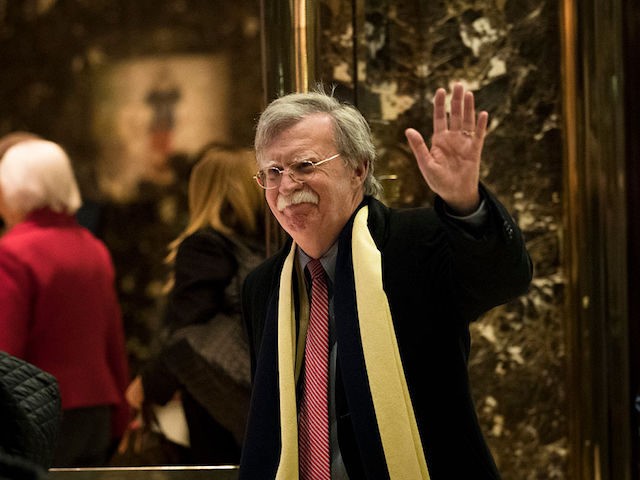With President-elect Donald Trump having filled almost every other top level national security position, all eyes are on who his pick to lead the State Department will be.
Trump’s short-list includes former Massachusetts governor and Republican presidential nominee Mitt Romney; Gen. David Petraeus, who had a storied military career before serving as Central Intelligence Agency director; former New York City mayor Rudy Guiliani; Bob Corker, chairman of the Senate Foreign Relations Committee; and John Bolton, a former undersecretary of state for non-proliferation and US ambassador to the United Nations.
With the decision forthcoming, members of the Trump team and broader commentariat have taken to the internet, newspapers, and television to advocate for and against specific candidates. Giuliani has been loyal to Trump throughout his campaign, but his lobbying ties to countries like Venezuela and Qatar might complicate confirmation. Mitt Romney has experience running large teams of people and could be a reassuring face as the nation’s chief diplomat to countries uncertain about the direction a Trump administration might go. He was a fierce critic of Trump throughout the campaign, however, and it is uncertain if Trump will ever truly bury that hatchet. Brookings scholar Michael O’Hanlon made the case for Petraeus at The National Interest, while over at the AEI Ideas, I made the case against the retired general. Corker is mainstream but it was his faulty compromise that enabled the Iran deal to bypass confirmation or even a majority vote.
But what about Bolton? Fred Fleitz, his former chief of staff at the State Department, recently penned a piece refuting much of his critics’ case: Bolton (full disclosure: a colleague of mine at the American Enterprise Institute) was not involved in Iraq war planning although, once the U.S. committed, he advocated for victory rather than engage in the opportunistic flip-flops of some colleagues and current Secretary of State John Kerry. To support troops in harm’s way even after the political winds change is responsible leadership.
Critics also disagree with Bolton’s cynicism of international organizations like the United Nations. Here, he is guilty as charged and thankfully so. Ambassadors should not be advocates of the countries or organizations to which they are appointed; they should serve as advocates only for the United States and its allies. The United Nations is a huge, bloated, ineffective bureaucracy high on rhetoric and low on accomplishment. Critics may disagree, but elections matter.
The real canard so often thrown against Bolton is that he does not have the temperament to be secretary of state, that he is a loose cannon. Indeed, this was one of the main arguments against his initial appointment to the United Nations more than a decade ago and a charge fed by a seemingly endless series of leaks from those with whom he clashed at the State Department. Those who repeat such a charge, however, have seemingly never considered the evidence. All the talk about Bolton’s knock-down, drawn-out campaigns for authorization to say or do something while working under Secretary of State Colin Powell — many apparently leaked by Powell, Deputy Secretary of State Richard Armitage, or their fellow travelers — show the opposite about Bolton from what his critics wish: Bolton was fighting tooth-and-nail within the State Department process. He may have rocked the boat but, unlike Armitage, he did not gossip at Washington cocktail parties nor did he violate the trust of President George W. Bush or, for that matter, Powell, by acting unilaterally without authorization.
Critics may say Bolton was a loose cannon but, in reality, he was simply a cannon: directed and precise in his desire to support America and its allies and checkmate those organized against the United States. Even if Trump passes over Bolton, history will show that he was the most effective diplomat in a generation. Any secretary of state can win an agreement if he or she is willing to ignore American interests in order to get his opposite’s signature on a sheet of paper. But Bolton won difficult arms control agreements and shepherded unanimous action against Iran through the United Nations without gutting their content. And if Bolton along the way upset diplomats more concerned with rhetoric than substance or unwilling to understand that the State Department was a hierarchy and not a consensus-driven shop, then so be it.
Michael Rubin is a Resident Scholar at the American Enterprise Institute and author of Dancing with the Devil: The Perils of Engaging Rogue Regimes (Encounter: 2014).

COMMENTS
Please let us know if you're having issues with commenting.